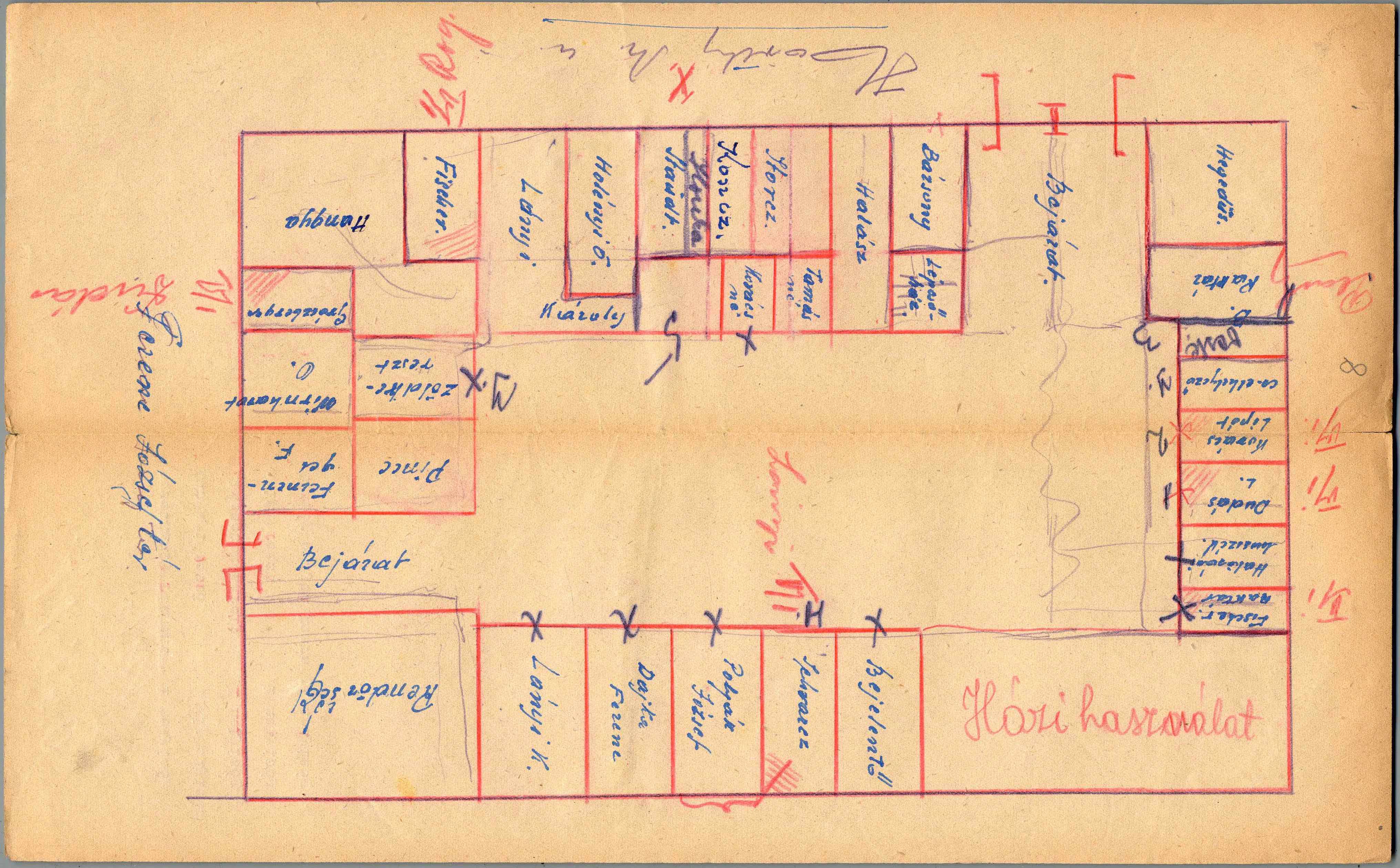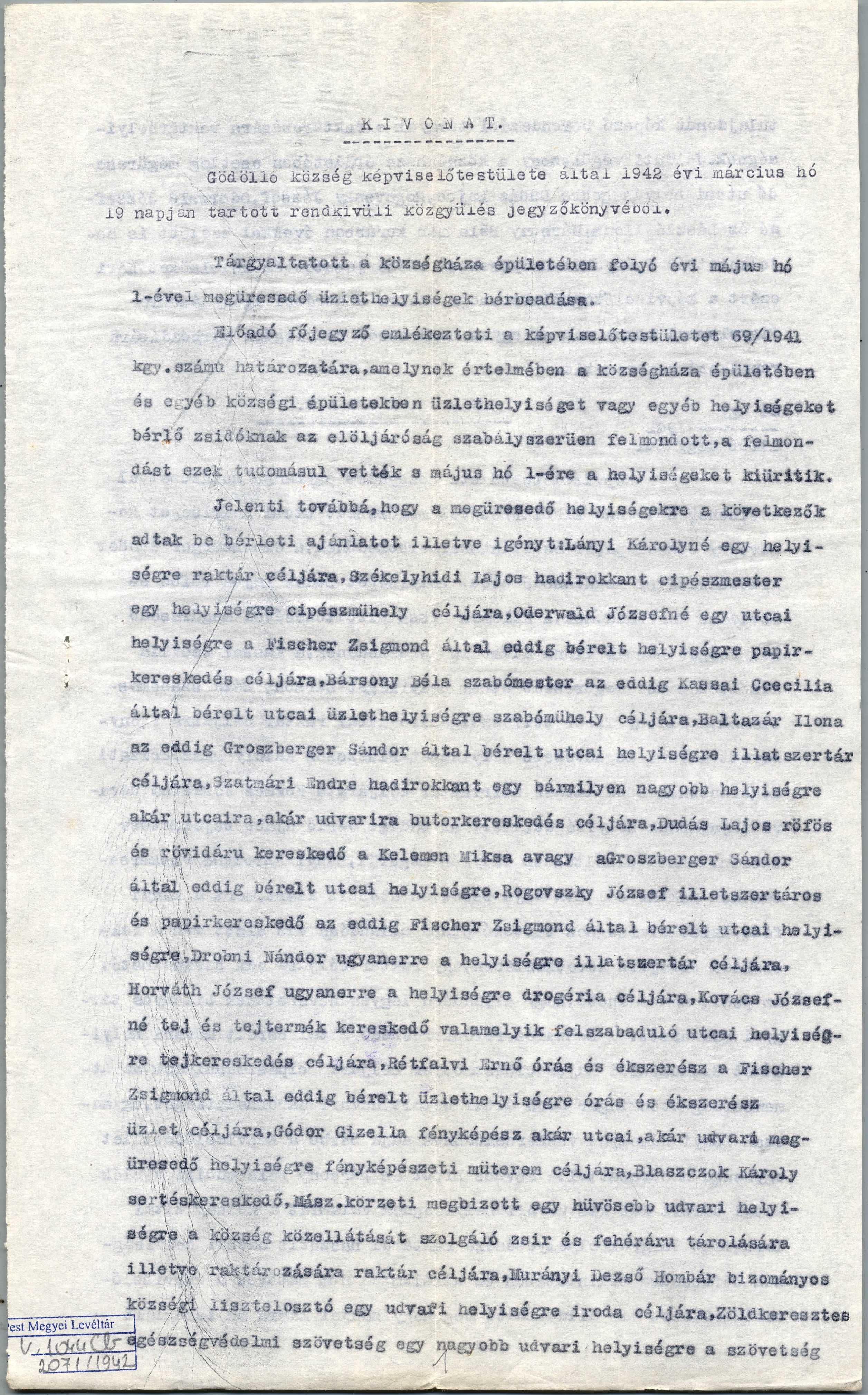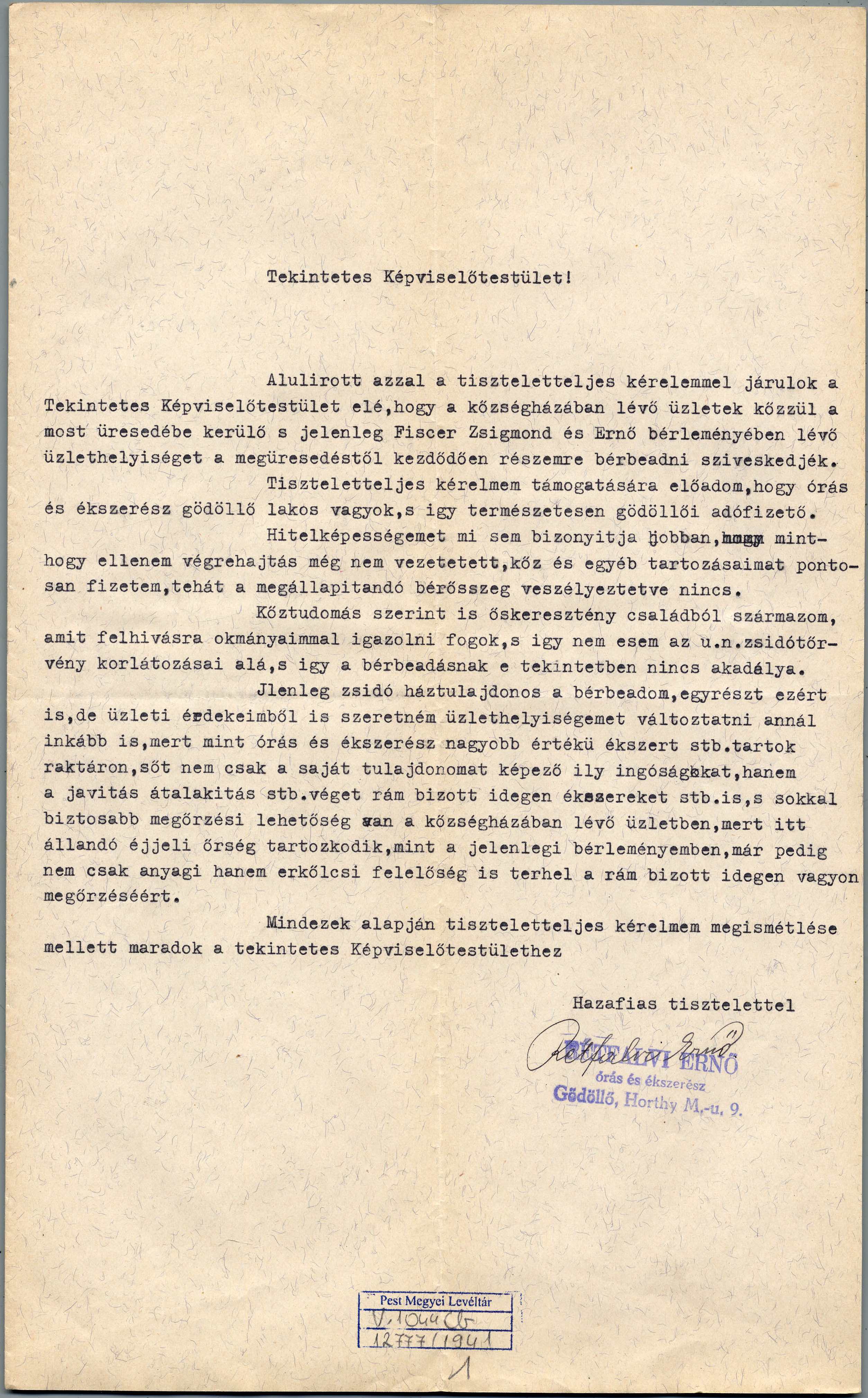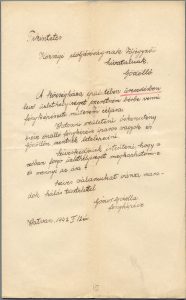Intro
In March 1942, the town council of Gödöllő decided to cancel the rent of those Jewish shopkeepers whose shops were located on the ground floor of the city hall. During the preparations, the council ordered a drawing of the ground plan of the city hall, which served as a market area at that time. The shops of Jewish tenants were marked with red pencil; thus it was easier to define, which places could be redistributed to non-Jewish tenants.

This was only one step of the series of local and national measures, which aimed at hampering the prosperity and expropriating the properties of the Jews in Hungary. “Aryanization”, the economic marginalization of the Jews had started earlier, and admittedly its goal was to strengthen the positions of Christians in economy and to redistribute Jewish properties in order to release social tension.
Historical background
The majestic Grassalkovich palace of Gödöllő, which served as the summer residence of Emperor Franz Joseph, was used by Regent Miklós Horthy between the two world wars. As a regional center, Gödöllő, a town close to Budapest, was also home to almost 200, mostly assimilated Jews at this time. Their lives were embittered by the local administration, which had a strong tradition of anti-Semitism: from 1920 the infamous László Endre was the leading civil servant, who later became one of the organizers of the ghettoization and deportations of the Hungarian Jews. His measures put an extra burden on the local Jewish shopkeepers and merchants.
From the end of the 1930s, the Hungarian governments enacted three major anti-Jewish laws and several decrees, whose aim was to deprive the Hungarian Jews of their occupations and properties. As a consequence, thousands lost their jobs and livelihood. The national legislations were followed and complemented by local actions.

The case of the Jewish shopkeepers in Gödöllő
In 1941, the town council of Gödöllő decided to abolish the rent of those Jewish shopkeepers who had shops in the city hall or other communal buildings. This decree ordered the Jews to empty their shops by May 1942, and the rooms were then given to Christians. According to the protocols of the council meeting on March 19, 1942, sixteen requests arrived, most of which contained the usual justifications for claiming Jewish property: the claimant’s participation in the First World War, Christian religion and big family. Finally, from the six shops, five were redistributed to claimants; one was left empty. The new tenants received contracts with the same conditions as the previous Jewish tenants.
The Minister of Interior issued a decree in early September, according to which canceling the rent of Jews did not fall under any restriction. The town council of Gödöllő had done that several months earlier.
The collection of the documents of Gödöllő
As in many cases, the archival documents produced by the municipality of Gödöllő are fragmented: only documents written after 1940 can be found there and even those are scarce. This phenomenon can usually be connected with the efforts of the local administration, which deliberately annihilated the written evidences of war crimes in many towns and cities and with the destruction of the war, which caused the loss of many documents.
Discussion questions
On which basis did they choose the new tenants?
Even though the excerpt of the protocol of the council meeting does not contain the reasoning for the choices made, from the requests and the newspaper article the most important reasons are quite clear. Without exception, these were traits that the conservative, anti-Semitic Horthy regime considered important when it came to “rewarding” a certain group of citizens.
What could Jewish merchants do if they wanted to keep their shops?
A system of helpers, called “stróman” or “Aladár” evolved as a consequence of the anti-Jewish laws. Non-Jewish workers or colleagues helped out Jewish shop owners sometimes for altruistic reasons, other times for a certain amount of financial compensation.
What was the outcome of the fact that non-Jews could claim the assets of the Jews from the point of view of Jewish–Gentile relations?
The anti-Jewish laws started both the economic and social segregation of the Jews. Jewish–Gentile relations were influenced by the fact that the properties of a group of people could be claimed without consequences, and as an outcome, the interests of non-Jews got entangled with the new status quo. This, however, had a major impact even after the war, when Holocaust survivors returned home and tried to restart their lives.


Dean Cycon
Thanks Borbala for another fantastic bit of detective work where others have tried to erase memory.